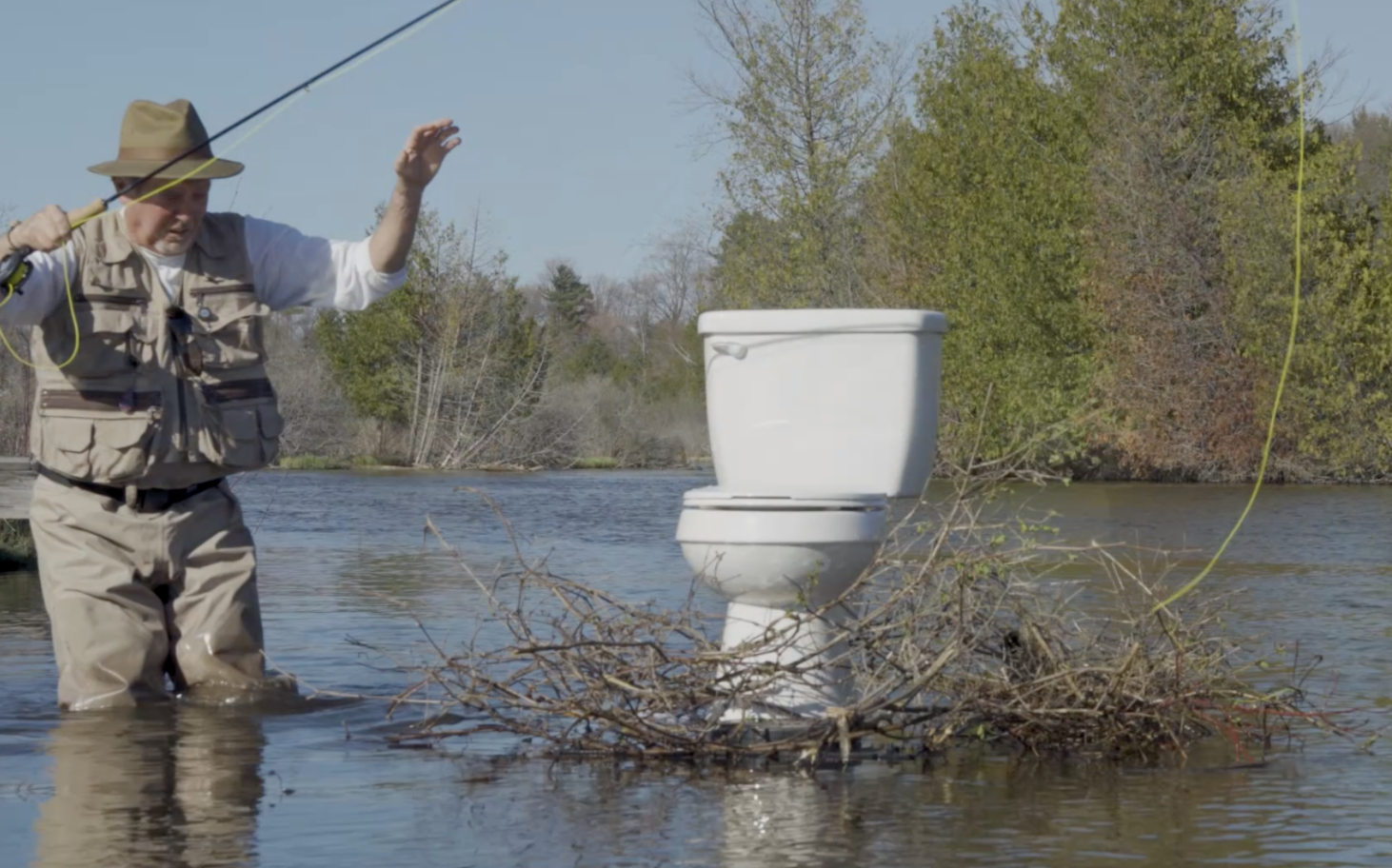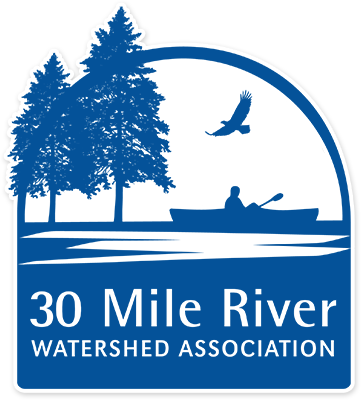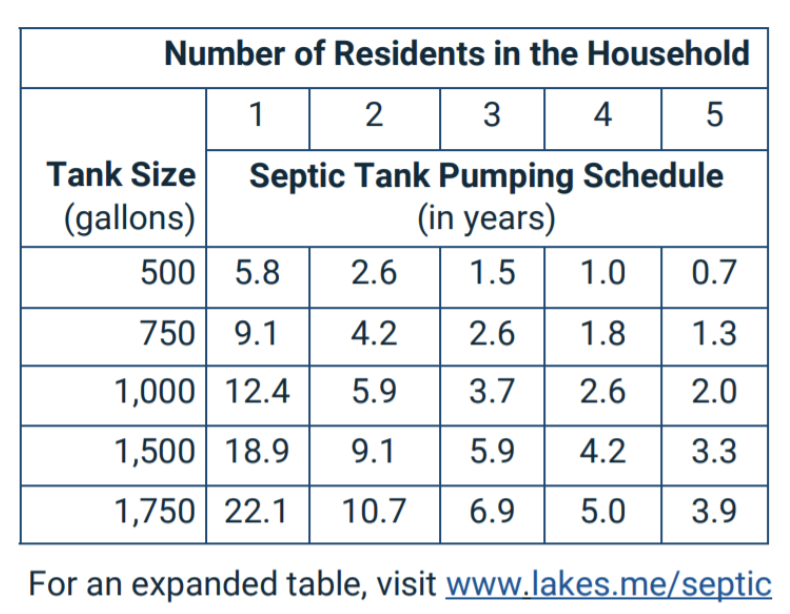Old, malfunctioning, and unmaintained septic systems on the lakefront can deliver chemicals, bacteria, viruses, and nutrients from your home or camp to the lake. This not only poses a threat to human health (viruses and bacteria), but can be a source of phosphorus – a nutrient that grows algae in the lake and can cause algal blooms when concentrations are too high. To keep your lake safe, here are some tips for maintaining a healthy septic system on the shorefront:
1. Septic systems, especially those near the lake, must be located and maintained. If you do not know where your system is located, you can find your system’s “as built” drawings at your town office or, if the system was installed after 1974, you can search for plans on the state’s database
2. How old is your septic system? Even modern septic systems only last about 30-40 years, depending on use, and if maintained properly. If your septic system was designed or installed more than 30-40 years ago, it is recommended that you contact a professional site evaluator to determine the effectiveness and health of your system.

Photo credit: FLOW (for the Love of Water) article “It’s Septic Smart Week” by Dave Dempsey (Sep 16, 2019)
3. Even new systems must be pumped at a regular frequency for proper function. Pumping your septic tank often will keep your system working for years to come- saving you money, protecting your property value, and ensuring that excess phosphorus and other harmful substances stay out of the lake. See the table (to the right) for suggested pumping schedules.
4. Flush only human waste and toilet paper! Household chemicals and anti-bacterial soaps can harm the bacteria in your septic tank needed for effective breakdown of wastes. Menstrual products, paper towels, dental floss, and wipes (yes, even the “flushable” kind!) can clog your system.
5. Never use septic tank additives like Rid-X or similar brands that say they will improve the function of your system. The bacterial enzymes in these products will actually interfere with the natural bacteria already in your tank, and plug up your leach field.
6. Prevent woody vegetation from growing on your leach field. Roots of trees and shrubs will intrude into your leach field piping, greatly reducing its function and shortening its life. Suggested vegetation on your leach field: grasses, ground covers, and ferns.
For more information about maintaining a healthy septic system on the lakefront, see Maine Lakes’ septic brochure, Caring for Your Septic System.
3. Even new systems must be pumped at a regular frequency for proper function. Pumping your septic tank often will keep your system working for years to come- saving you money, protecting your property value, and ensuring that excess phosphorus and other harmful substances stay out of the lake. See the table (below) for suggested pumping schedules.
4. Flush only human waste and toilet paper! Household chemicals and anti-bacterial soaps can harm the bacteria in your septic tank needed for effective breakdown of wastes. Menstrual products, paper towels, dental floss, and wipes (yes, even the “flushable” kind!) can clog your system.
5. Never use septic tank additives like Rid-X or similar brands that say they will improve the function of your system. The bacterial enzymes in these products will actually interfere with the natural bacteria already in your tank, and plug up your leach field.
6. Prevent woody vegetation from growing on your leach field. Roots of trees and shrubs will intrude into your leach field piping, greatly reducing its function and shortening its life. Suggested vegetation on your leach field: grasses, ground covers, and ferns.
For more information about maintaining a healthy septic system on the lakefront, see Maine Lakes’ septic brochure, Caring for Your Septic System.

